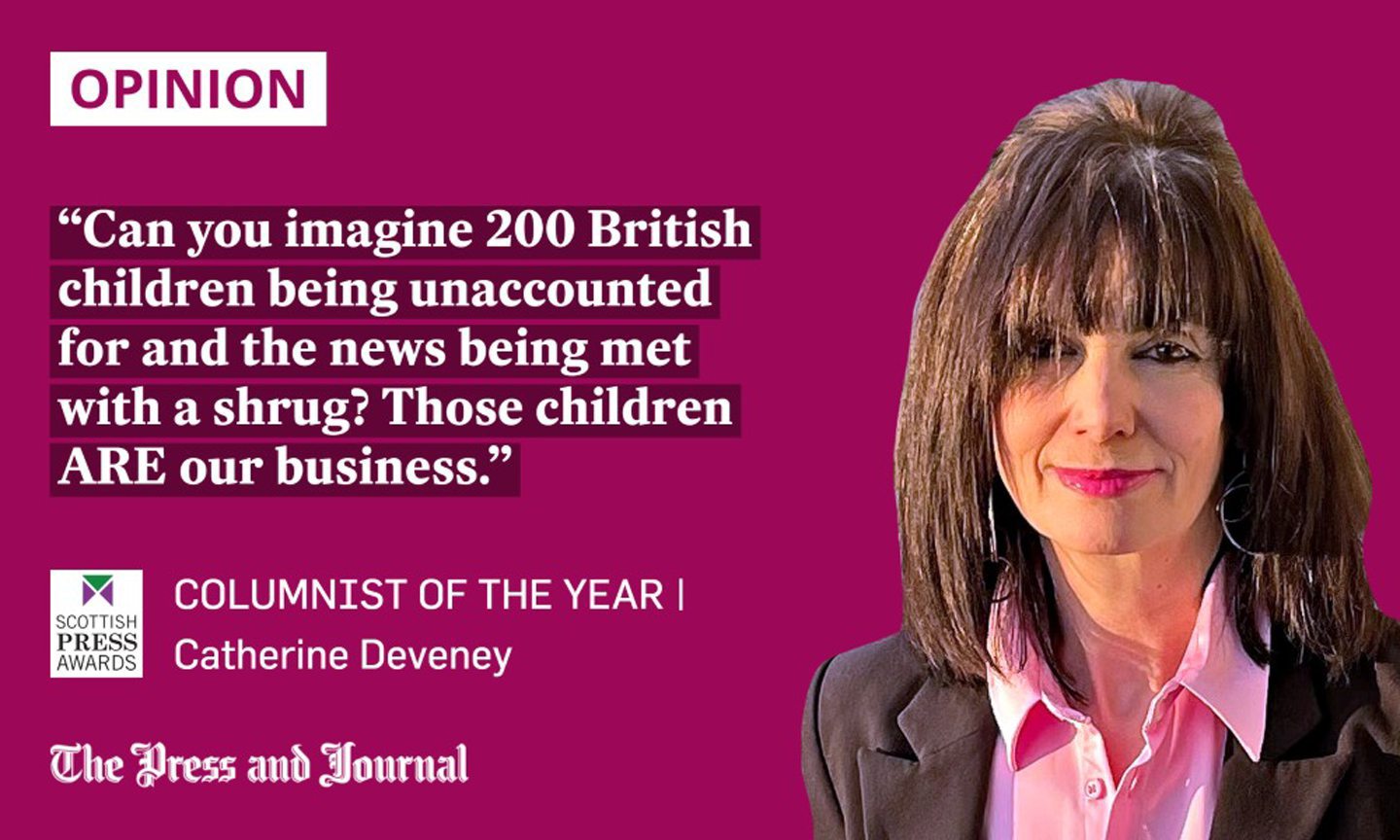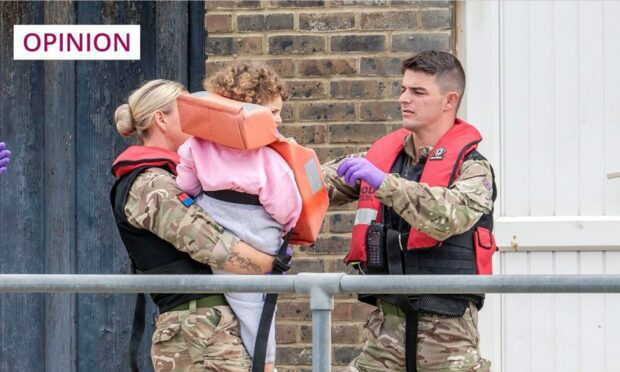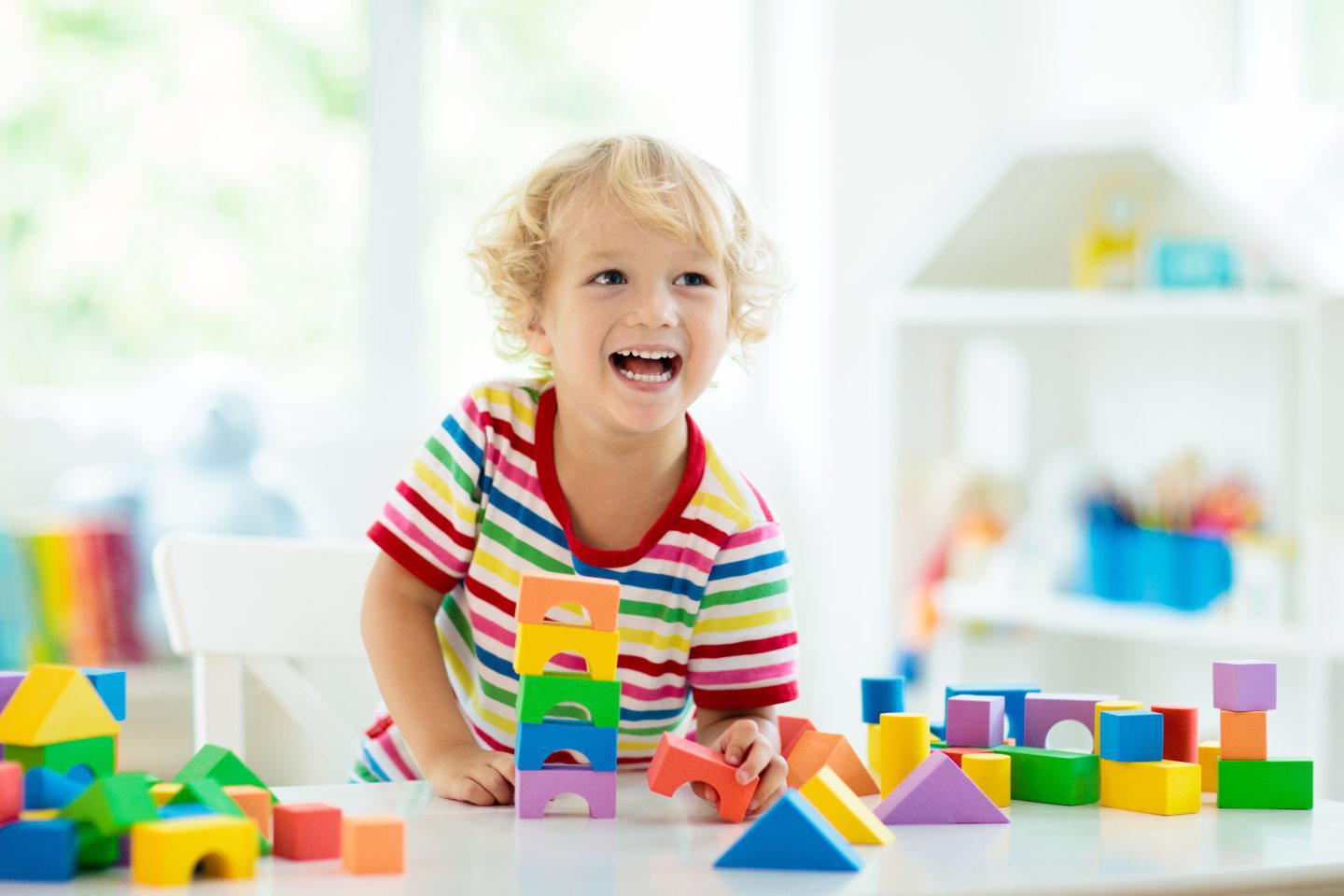Kate Middleton is right, we must provide a ‘more supportive and loving place’ for children in the UK – starting with migrant kids, writes Catherine Deveney.
Despite the (many) decades since, the memory of being four is drawn in permanent marker on my consciousness.
We have all experienced the mendacity of memory: the contradictory versions of the same event. It was summer; no, it was winter. Nancy was there; no, she came later. Remember?
But this memory seems indelible. Lost in a department store. Crying, wandering, crying. The elderly store doorman – I see him – dressed in a white coat, kindly taking my hand. Lost forever. No, there he is, there, there! Daddy!
The memory flooded through me, reading about the hundreds of lone immigrant children, washed up on British soil like international flotsam, dumped by the incompetent Home Office in hotels with inadequate supervision, and subsequently “lost”, in the careless way you might lose a bus ticket.

It was the only handle I could grasp to imagine those children’s plight. For me, there was the safety of reunion. But how does it feel to be 11 and alone in a strange country, belonging to nobody and protected by nobody – not even, apparently, the state?
Immigration Minister Robert Jenrick admitted to parliament that, out of 4,600 unaccompanied asylum-seeker children, 440 had gone missing. Two hundred are still unaccounted for.
A whistleblower from a Brighton hotel where unaccompanied young people are kept described the abuse and racism children suffered from staff, and the danger they were in from child-trafficking gangs.
Tulip Sadiq asks the prime minister about the welfare of 200 unaccompanied migrant children who’ve gone missing.
Tory MP Jonathan Gullis heckles ‘well they shouldn’t have come here illegally’.
Just when you think you’ve heard it all, the Tory Party find a new low #PMQs
— Peter Kyle MP (@peterkyle) January 25, 2023
Worse, MP Jonathan Gullis – ex-schools’ minister, no less – provoked outrage with his searingly stupid contribution: “Well, they shouldn’t have come here illegally.” And he shouldn’t have any responsibility, ever again, for children.
A Brighton councillor more accurately described it as “an unprecedented child safeguarding catastrophe”.
The vulnerable of any age are the responsibility of all of us
It was tough enough reading the description of one young Iranian child, separated from adult supervision because of Covid, who was so anxious that his “face was pinched and his legs were buckling”. But, reading it next to the pontifications of a privileged princess – Kate Middleton – about the importance of the first five years of life, and how we should all think of ways to make the world a “more supportive and loving place” for children was breathtaking.
I am not sure the Windsors have proved themselves an authority on family matters of late.
At first, I tried to stifle irritation. It was, after all – like Camilla’s “interest” in domestic violence – a worthy cause. But there was something so cynically calculating, so hideously, simplistically, middle class about her “letter” to the nation, that the cause sounded like some outdated, 1950s project in which we all read more fairy tales to toddlers. Socioeconomics was barely mentioned.
Yes, pre-five experiences are hugely influential, but need doesn’t stop there. There is no line in the sand at the age of five. Kate Middleton need only look at her own husband and brother-in-law to see the effects of trauma in later childhood.
Our attitudes to children are often suspect. As long as they resemble something out of a Disney film, we cluck and coo. But, when children are damaged, when they are abused and neglected and abandoned, when they are difficult and demanding, we tut and turn.
Asylum seekers? Not our responsibility. Can you imagine 200 British children being unaccounted for and the news being met with a shrug? Those children ARE our business. The vulnerable of any age are the responsibility of all of us.
Protecting one group doesn’t mean abandoning another
Patience with the princess’s patronising statement finally disappeared at her assertion that “as a society, we currently spend much more of our time and energy on later life. I am absolutely determined that this long-term campaign is going to change that.”
What IS she talking about? We spend our time and energy on the elderly? No, we don’t. We dump them out of sight in Covid-riddled care homes, refuse to give them decent pensions, TV licences or heating.
Our attitudes to both children AND the elderly, should be seamless: a reflection of society’s basic human decency. Care is not just about age, but about need
This week, it emerged that home visits to dementia sufferers are lasting for three minutes instead of 30. A charity with a cute puppy picture is likely to elicit more empathy than a charity issuing a picture of a wrinkled old person.
Kate Middleton’s “determination” to change rather than broaden our focus is dangerous. Care and empathy are not finite. Protecting one group doesn’t mean abandoning another.
Pre-five, children love completely, unconditionally, with the trust that devotion engenders, until adults give them a reason not to. That makes it easy for most of us to empathise with them.
But a demented 80-year-old who can’t remember your name, who lashes out because their mind betrays them, making them fear even those they once knew best and loved most? That’s tricky. That’s the empathy test.
Our attitudes to both children AND the elderly, should be seamless: a reflection of society’s basic human decency. Care is not just about age, but about need. It’s about vulnerability.
It is certainly not about princesses in palaces looking for public approval with a manufactured “cause”.
Catherine Deveney is an award-winning investigative journalist, novelist and television presenter, and Scottish Newspaper Columnist of the Year 2022



Conversation